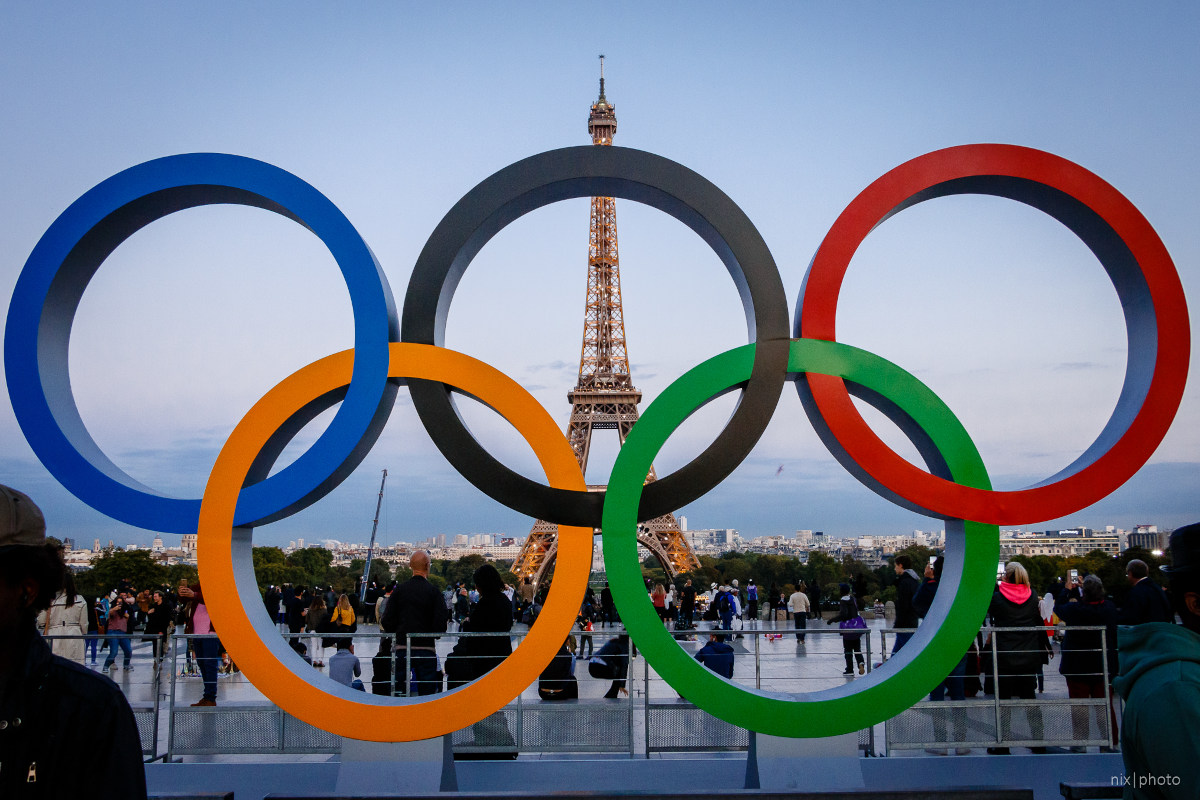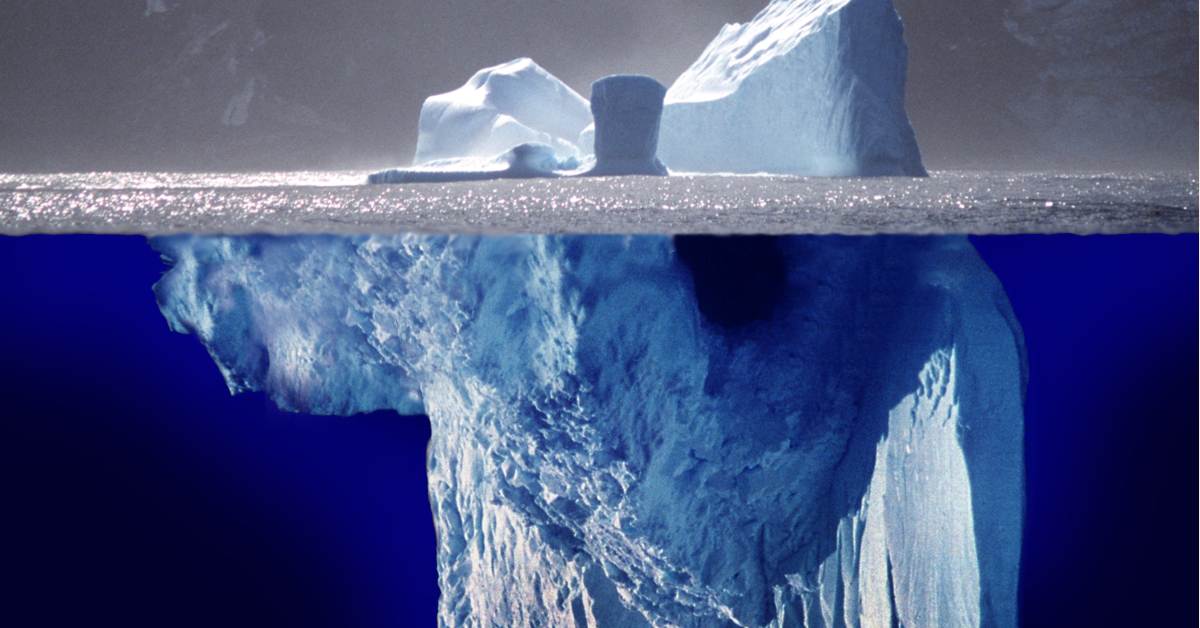I must admit that I became somewhat obsessed with the Paris Olympics over its two week run. As I was watching the closing ceremonies, I was struck by the elegance and eloquence of the final speakers who were about to peacefully transfer the responsibilities for the 2028 Olympics to the United States. In a beautifully crafted and moving speech, Tony Estanquet, the Paris 24 President, led off: “With the first medals, a wave started building. This wave took over the country, carried the whole world in its wake and went beyond anything we could imagine. We wanted strong images, our competition venues will go down in the history of the Games. We wanted excitement, we got passion. We wanted to be inspired, we got Leon Marchand. Together, we have experienced Games like nothing the world has seen before.”

Thomas Bach, the IOC President, addressing the athletes, followed: “During all this time, you lived peacefully together under one roof in the Olympic Village. You embraced each other. You respected each other, even if your countries are divided by war and conflict. You created a culture of peace. This inspired all of us and billions of people around the globe. Thank you for making us dream. Thank you for making us believe in a better world for everyone. We know that the Olympic Games cannot create peace. But the Olympic Games can create a culture of peace that inspires the world. This is why I call on everyone who shares this Olympic spirit: let us live this culture of peace every single day.
And then, in a jarring juxtaposition, Tom Cruise entered the scene by flying down on a wire onto the stage where he took the flag and rode off on his motorcycle to Hollywood. What? Please, please, please. It felt like the mood had changed from class to crass. May that image not represent what Hollywood will do in 2028 to the spirit created in Paris in 2024.
The Olympic Games have always been a stage for athletic prowess, but they also offer a unique platform for host cities to showcase the best of their cultures to a global audience. The recent Games in Beijing (2008), London (2012), Rio de Janeiro (2016), Tokyo (2020), and Paris (2024) each exemplified this in their own distinct ways.
Beijing 2008 was a grand spectacle, a testament to China’s rich history and its emergence as a global power. The opening ceremony, a meticulously choreographed display of thousands of performers, showcased traditional Chinese arts and philosophy. The iconic Bird’s Nest stadium and the Water Cube, with their striking modern architecture, symbolized China’s technological prowess and aspirations. The games were a proud declaration of China’s place on the world stage. Beijing presented a polished and controlled image of Chinese culture. The opening ceremony was a grand spectacle of synchronized movements, dazzling lights, and traditional music, reflecting the country’s long history and cultural heritage. The Games also showcased China’s modern achievements, with state-of-the-art venues and infrastructure. However, some critics argued that the carefully curated presentation lacked spontaneity and warmth. Indeed, the current culture in China is trending toward more control, restrictions on civil liberties, and international aggression. Its economy is slowing, its debt levels are rising, and youth unemployment is plunging. There is a widening wealth gap as well as concerns about social mobility and environmental pollution. China is doing better on the diving platform than on the cultural stage.
London 2012 presented a charming blend of tradition and modernity. The opening ceremony, a vibrant theatrical production, celebrated British history, literature, music, and even the National Health Service. It was a delightful homage to British eccentricity and creativity. The Olympic Park itself, built on a formerly industrial site, became a symbol of urban regeneration, echoing London’s constant evolution. As expected, London pulled off its Olympics with pomp, style, and dignity. Now, just 12 years later, the Brexit fallout plagues trade, independence movements are gaining momentum, there is high inflation and labor shortages, and huge challenges with inequalities, housing affordability, and integration. All of these pressures impact the culture it has nurtured for hundreds of years. The UK is doing better going round and round on the cycling track than moving forward on its cultural path.
Rio 2016, with its vibrant Carnival spirit, infused the Games with contagious energy. The opening ceremony was a dazzling spectacle of samba rhythms, colorful costumes, and exuberant performances, encapsulating Brazil’s rich cultural tapestry. The Games also highlighted the country’s natural beauty, with events taking place against the backdrop of iconic landmarks like Sugarloaf Mountain and Christ the Redeemer. Latin America infused the Games with its welcoming culture. Now, there is political polarization, democratic backsliding, corruption scandals, slow growth, high inflation, and many environmental concerns – not the least of which is deforestation. On the plus side, Lula’s victory over Bolsonaro gives some hope for improvement. It seems, however, that Brazil is doing better with its volleyball spikes than its cultural hikes.
Tokyo’s Games, 2020 were a fascinating blend of tradition and innovation. The opening ceremony paid homage to Japanese art forms like kabuki and manga, while also showcasing cutting-edge technology like drones and projection mapping. The city’s meticulous attention to detail was evident in everything from the exquisite flower arrangements to the impeccably designed Olympic Village. The Games also provided a glimpse into Japan’s unique pop culture, with anime and video game characters featured prominently. Tokyo managed to orchestrate the games in a way that perfectly reflected their culture. Currently, however, Japan has concerns about an aging population, demographic decline, slow growth, a shrinking workforce, a declining birthrate, and gender inequality. All of these challenges make it difficult to preserve the culture Japan has created since it’s beginning. While Japan won 20 gold medals in Paris, they need to show a little more mettle in handling their cultural challenges.
Paris 2024 was a celebration of French elegance and joie de vivre. The opening ceremony took place in the rain on the Seine River, a unique and audacious spectacle that showcased Parisian landmarks. The games emphasized sustainability and inclusivity, reflecting contemporary French values. The use of existing venues, like the Eiffel Tower and the Grand Palais, blended sport with Parisian heritage, creating a unique and unforgettable experience. Paris, known as the “City of Lights,” celebrated its rich artistic and cultural heritage and highlighted the city’s commitment to innovation. Currently, France is struggling with social unrest and protests over pension reforms. Macron, and his more moderate party, is fighting off challenges from far-right and far-left parties. Tensions are rising due to inequality, immigration, religious freedom, and regional disparities in economic development. While Marchand thrilled the world with his swimming dominance, France is in danger of drowning in the cultural currents it is facing.
The Olympic Games in London, Rio, Tokyo, Beijing, and Paris exemplified the best of their cultures in distinct ways. Rio’s Games were a vibrant celebration of Brazilian spirit, Tokyo’s was a showcase of Japanese tradition and innovation, Beijing’s was a carefully curated presentation of Chinese heritage, and Paris was a visual feast of French art and culture. While each host city presented a unique experience, they all used the Olympic platform to share their cultural riches with the world. The Games were as much a display of cultural principles as athletic prowess. To me, the best measures of success of the Olympic Games are more qualitative than quantitative. It’s not so much how many medals each country wins, as how well the athletes represent the values and traditions of the cultures in which they trained.
While each host city presented a unique cultural experience, there were also some common threads. All five Games celebrated the diversity of their cultures, showcasing both traditional and contemporary art forms. They also used the Olympic platform to promote their countries’ values and aspirations. AND, each city has continued to struggle with and sustain the values their respective countries have historically represented.
I was moved by several such iconic images during the Paris Games. I especially liked the medal ceremony for the women’s floor exercise, in which the United States gymnasts Simone Biles and Jordan Chiles honored veteran Brazilian gold medalist Rebeca Andrade following the women’s floor exercise. What a celebration of excellence, humility, joy, and collaboration. Simone Biles, the clear gymnast GOAT was able to joyfully celebrate the accomplishments of one of her biggest competitors. Her grit and grace were inspiring. Also, the amazing displays of precision by Chinese divers, including China’s Long Daoyi and Wang Zongyuan, in the men’s synchronized diving competition – the discipline and talent to execute such complex moves in complete syncronicity—represent what is possible for us as a human race.
There were so many memorable moments that stick in my mind from these Olympics. For example, I will never forget Steph Curry draining four 3-pointers in the last two minutes of the men’s basketball final to beat France. Or Leon Marchand’s brilliance in the pool. Or the Ethiopians’ fluidity and determination in long distance running. All thrilling examples of unparalleled excellence. I’m sure you have your own “best moments.”
But let’s return to the unsettling possibility of what Hollywood might do to convolute the spirit of these games into some kind of celebrity-dominated fiasco, turning every opportunity for a representation of cultural excellence into a spectacle of cultural perversion. I’m sure this is a complete over-reaction, but I’m hoping whoever made the choice to feature Tom Cruise in the final ceremonies of the one event in the world that brings together the greatest talent from countries all over the world to push each other to higher levels of excellence is not making decisions on how the 2028 LA Olympics should unfold. We have an opportunity to showcase what is best about America.
I have a lot of hopes for the 2028 Olympics: I’m hoping we will celebrate LA’s diversity and creativity instead of Hollywood’s banality and inanity. I’m hoping that viewers around the world will see America represented as a culture of possibility. I’m hoping LA, 2028, will “create a wave that takes over the country, carries the whole world in its wake, and goes beyond anything we could imagine.” Finally, I’m hoping that the Olympics evolve as a live demonstration of what a culture of collaboration and peace can look like as it promotes higher and higher levels of excellence. Indeed, instead of being primarily a competition in the war of medals, the Olympics will provide a forum for cultural collaboration. May it be so.
Also published on Medium.




We can only hope…thank you my friend